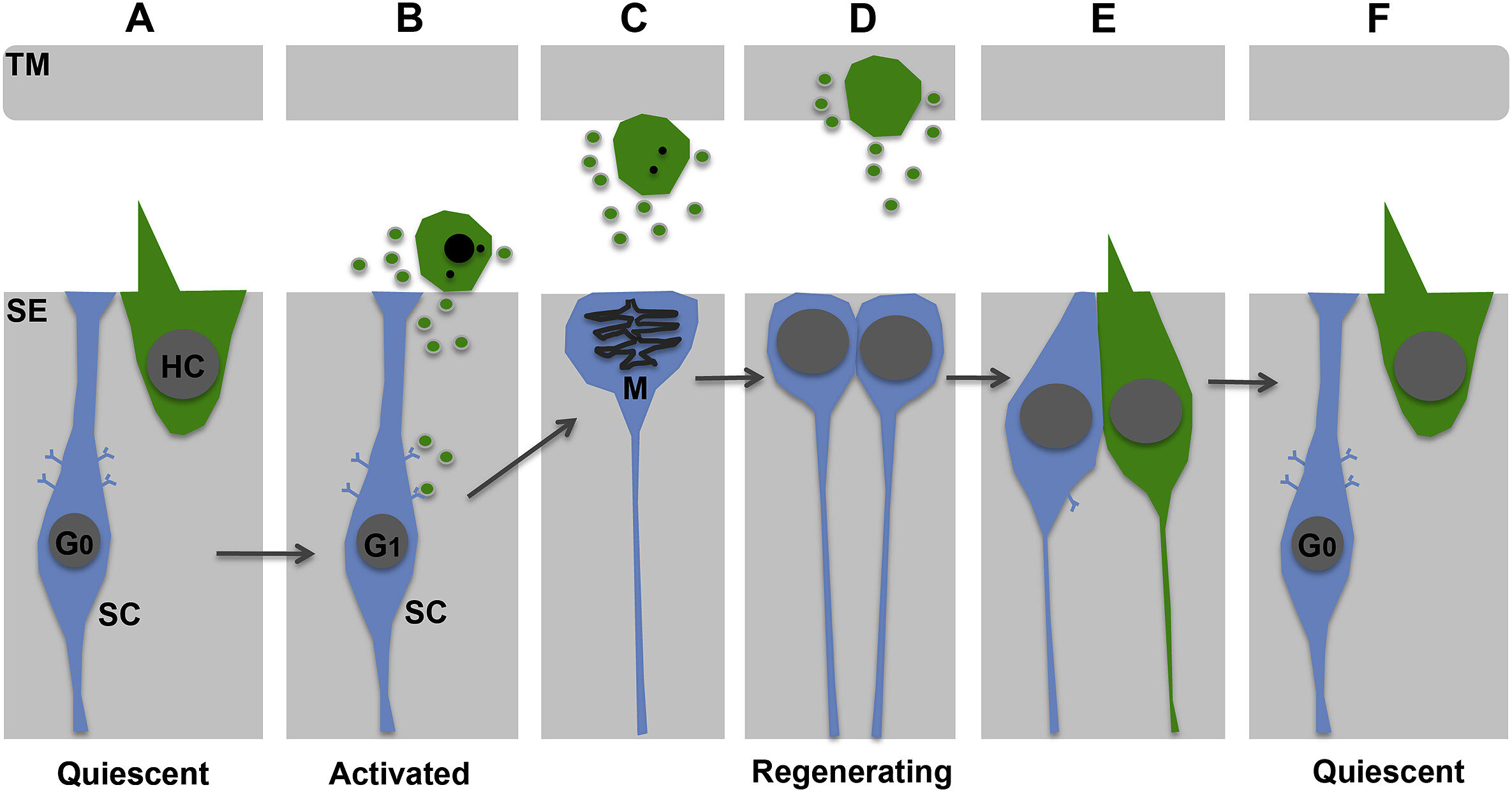By Jennifer Stone, Ph.D.
Hair cells in the cochlea are the only cells in our body specialized to encode the energy in sound waves. As a result, we lose our hearing when hair cells die, which occurs during aging and after exposure to excessive noise or ototoxic drugs. Research indicates that no adult mammals replace their auditory hair cells once they are lost.
However, some mature non-mammals regenerate hair cells after damage. Of these animals, the bird’s auditory organ most closely resembles that of humans. Moreover, the regenerated hair cells in birds nearly restore hearing. Thus, birds are particularly important animal subjects for hair cell regeneration research.
This figure shows a model for how vascular endothelial growth factor (VEGF) signaling may trigger hair cell regeneration in the auditory organ of birds. VEGFA (green), present in hair cells (A), may be secreted as hair cells die. VEGF may bind its receptors (B) on supporting cells (blue cells), with trigger them to divide (C) and form new hair cells and supporting cells. VEGF may also stimulate some supporting cells to directly convert into hair cells (not shown).
It has been known for years that supporting cells—also located in the hearing organ—are the source of the new hair cells in birds, but the molecules that enable supporting cells to regenerate hair cells are not understood. A January 2020 Hearing Research study by Liangcai Wan, M.D., and HRP consortium members Michael Lovett, Ph.D., Mark Warchol, Ph.D., and Jennifer Stone, Ph.D., explored the roles of a molecule called vascular endothelial growth factor (VEGF) in auditory hair cell regeneration in chickens.
The team suspected that VEGF might be required for regeneration because the levels of molecules in the VEGF signaling pathway changed significantly after damage. When they silenced VEGF signaling, they found that hair cell regeneration ceased. Conversely, when they added excess VEGF, they found regeneration was enhanced.
The investigators theorize that VEGF, which is abundant in typical hair cells, is released when hair cells die, promoting supporting cells to form new hair cells. This study reveals a novel mechanism controlling hair cell regeneration. Future studies should test if VEGF can enhance hair cell regeneration in adult mammals.
HRP consortium member Jennifer Stone, Ph.D., is the director of research in the department of otolaryngology–head and neck surgery at the Virginia Merrill Bloedel Hearing Research Center at the University of Washington. Learn more about the HRP at hhf.org/hrp and hhf.org/spotlight.
You can make a donation to support innovative hearing and balance science that will make better treatments and cures available faster. HHF maintains stellar charity ratings from all watchdogs and pledges to use your gift wisely.



